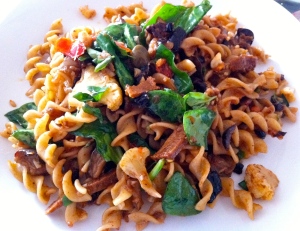A new study to be published in the August edition of the American Journal of Clinical Nutrition shows that repetitive meal plans may make it easier for people to lose weight.
University of Buffalo nutritionist Leonard Epstein and his colleagues recruited 32 women —half of them obese, half nonobese— and divided them into two groups. Each group also had equal numbers of overweight and normal weight individuals. The women were instructed to perform an assigned task for 28 minutes and then given 125-cal. portions of macaroni and cheese. They were allowed as many additional helpings as they wanted.
Half of the participants completed the sessions on five consecutive days and half came back once a week for five weeks. By the end of the sessions, the once-a-day group had decreased calorie intake of macaroni by about 30 calories per session, whereas the once-a-week group had increased theirs by 100 calories. The researchers concluded that the first group had simply gotten sick of the macaroni.
So how does that apply to a weight-loss plan? By regularly incorporating certain foods (try several times a week rather than so often you never want to see that food again), you’re less likely to overdo it on the portions. For example, I know there are some of us who say we could eat, like, pizza every day, but if we really were offered a pie every single day, a slice or two would probably do it. However, if it were a weekly ritual, perhaps some of us would feel more inclined to eat much more than that, since it was more exciting. Wow, pizza! I haven’t had pizza in a whole week!
Maybe pizza’s not the best example, but this line of thinking could also be used for healthy foods. One of the most common laments I hear from people who want to lose weight is that they eat all the right stuff but that they eat too much of it. Keeping the repertoire on the small side might make that plate of whole wheat pasta less tempting to go to town on, since you know you’re going to be having some tomorrow.
I think this kind of research is pretty fascinating, and it may lead to more information on the links between overeating and addiction.
You can read more about the study at the American Journal of Clinical Nutrition.
